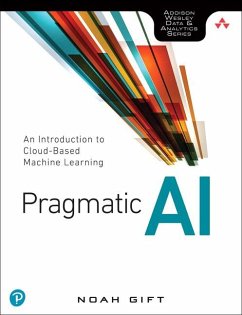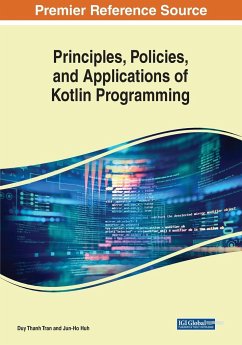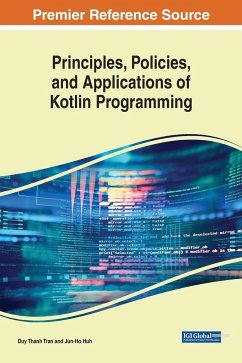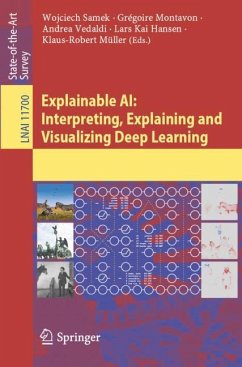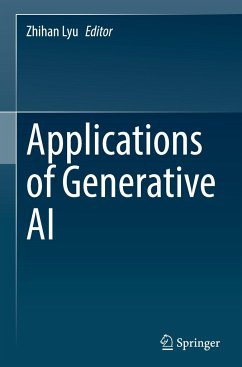
Democratized Generative AI: Principles, Challenges and Applications
Versandkostenfrei!
Versandfertig in über 4 Wochen
205,99 €
inkl. MwSt.

PAYBACK Punkte
103 °P sammeln!
Democratisation demonstrates the evolution of Artificial Intelligence (AI) from a complex and exclusive technology understood by a select few to a more accessible tool. This suggests that AI capabilities are no longer limited to just big enterprises and specialised researchers, but are readily accessible to small businesses, creative workers, and educators in general. The changes have extensive implications, impacting several aspects of the service delivery process and profoundly changing our interaction with technology. The evolution of AI from a specialised field to a widely available tool i...
Democratisation demonstrates the evolution of Artificial Intelligence (AI) from a complex and exclusive technology understood by a select few to a more accessible tool. This suggests that AI capabilities are no longer limited to just big enterprises and specialised researchers, but are readily accessible to small businesses, creative workers, and educators in general. The changes have extensive implications, impacting several aspects of the service delivery process and profoundly changing our interaction with technology. The evolution of AI from a specialised field to a widely available tool is remarkable. The artificial intelligence era was defined by large corporations and advanced research institutions. This undertaking required a significant allocation of resources, and a specialised skill set. There has been a growing democratic movement over time, triggered by numerous factors. Advancements in technology have lowered the cost of AI. Accessible platforms are being developed, reducing the barrier to entry and enabling individuals and enterprises to utilise AI without requiring specific technical expertise. This change is enabled by a growing recognition that AI can accelerate innovation, productivity, and competitive advantages across several industries. AI has expanded and improved its utilisation in the digital economy's healthcare, finance, education, and entertainment industries. IT leaders are increasingly looking for methods to expand the advantages of AI capabilities throughout the entire organisation. The arrival of new AI-based tools facilitates achieving that goal. This democratisation involves expanding low- and no-code technologies, which allow non-developers to create and launch software, to include AI. It involves exchanging verified data and enhancing data literacy within the organisation. Not every professional is proficient in writing machine learning scripts. Commercial experts comprehend the potential of AI, create appropriate use cases, and utilise the results to attain commercial outputs and insights. Facilitating the democratisation of AI in the corporate sector is achievable through decentralised governance structures and the emergence of AI-centric services in the market. However, as with any venture incorporating novel technology, democratisation has advantages and obstacles. This book covers a wide range of democratized generative AI techniques, algorithms and frameworks, explores the latest advancements in democratized generative AI, practical use cases and applications of democratized generative AI.



